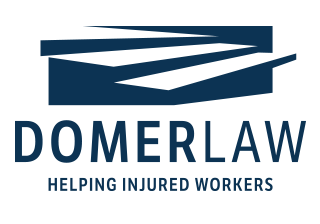Even when you have the proper training, there are many occupations that come with inherent risks. After all, accidents happen in virtually any employment setting. If you sustain an injury on the job, you may be eligible for workers’ compensation benefits. Depending upon the factors surrounding the injury or illness, you may also be able to file a third-party claim against a non-employer. Specifically, if someone/something outside of your employer or coworker was responsible for your injury, you may explore a third-party personal injury lawsuit.
In order to file your claim successfully, you must understand all that it entails. There are a few different types of third-party claims you may file.
CAN‘T SUE YOUR EMPLOYER (or COWORKER)
First things first. After a workplace injury, you are absolutely barred from suing your employer (or a coworker) for a personal injury claim. The only recourse is the benefits and medical expenses through the worker’s compensation system. This means that you can’t sue your employer for pain and suffering damages. Your benefits are limited to those available through worker’s compensation.
POTENTIAL THIRD-PARTY CLAIMS
Coworker’s Intentional actions – While you generally cannot sue a co-worker under the Wisconsin’s Workers’ Compensation Act, if an employee engages in an intentional assault of another employee on the job, the victim could pursue a third-party case against the individual who committed the battery.
Motor Vehicle Accidents – If a worker is injured in a work-related motor vehicle accident, they can pursue a third party case against the driver (or person responsible) for the accident. For example, if a worker is traveling for work and they are struck by another driver (who is at fault), a potential liability suit exists. In these situations, a worker can file both a work comp claim and a liability claim.
Talking to an experienced attorney is important in these situations to coordinate both types of claims — and to explain how work comp benefits may impact any recovery in a third party case.
Defective products – If an employee suffers injury due to defective products that the employer has no control over, the employee may receive workers’ comp and file a product liability lawsuit against the manufacturer. According to Wisconsin law, upon settling the case, a formula applies whereby an employee generally has to pay back the workers’ compensation benefits from the third party award amount and may keep the difference.
After an injury, you may need assistance to survive. The proper claims may assist you in making sure you and your loved ones receive the compensation you need. Take some time to review your options and choose the best path for you.


